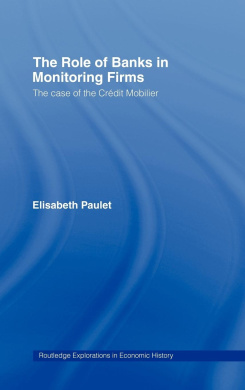Description
Does the Anglo-American approach to the relationship between banks and firms have a significant weakness compared to the German and Japanese approach? This book addresses issues in the current literature on corporate finance using historical evidence. In particular it looks at the role of universal banks in relaxing the credit constraints of firms, supervising managers and stabilizing share prices. The key issue is whether the Anglo-American asset based financing is more efective than the main-bank approach used in Germany and Japan. Earlier studies have found that firms with a close relationship with a major bank have high market value compared to book value, although it is difficult to determine whether this is cause or effect. The case of the Credit Mobiler – the first universal bank – is interesting because the bank failed. If it was the links with the bank that caused high and stable share prices or relaxed customer constraints, the bank’s bankruptcy should have precipitated the loss of these benefits. In fact the bankruptcy had almost no effect on the share prices or the investment behaviour of the relevant firms, casting doubts on the benefits of powerful banks.






